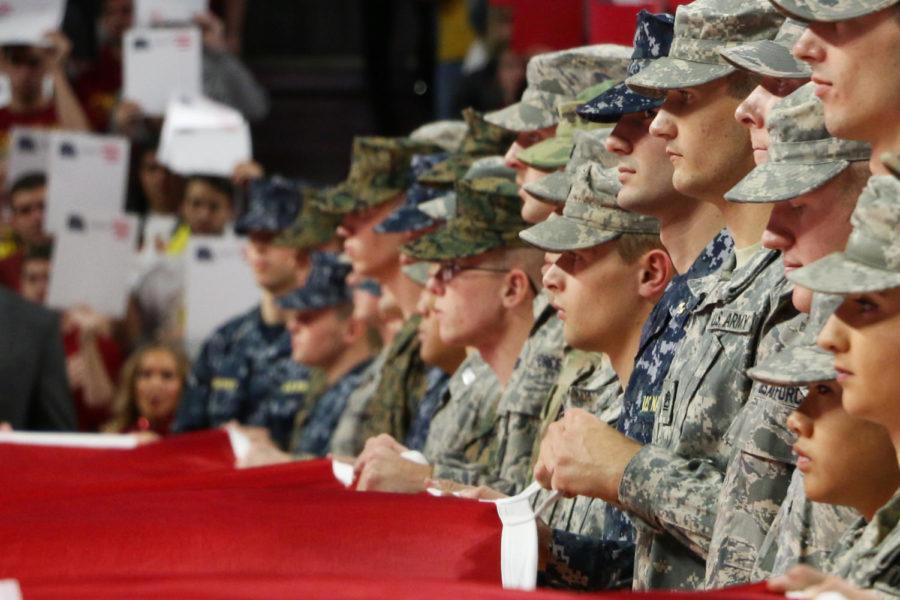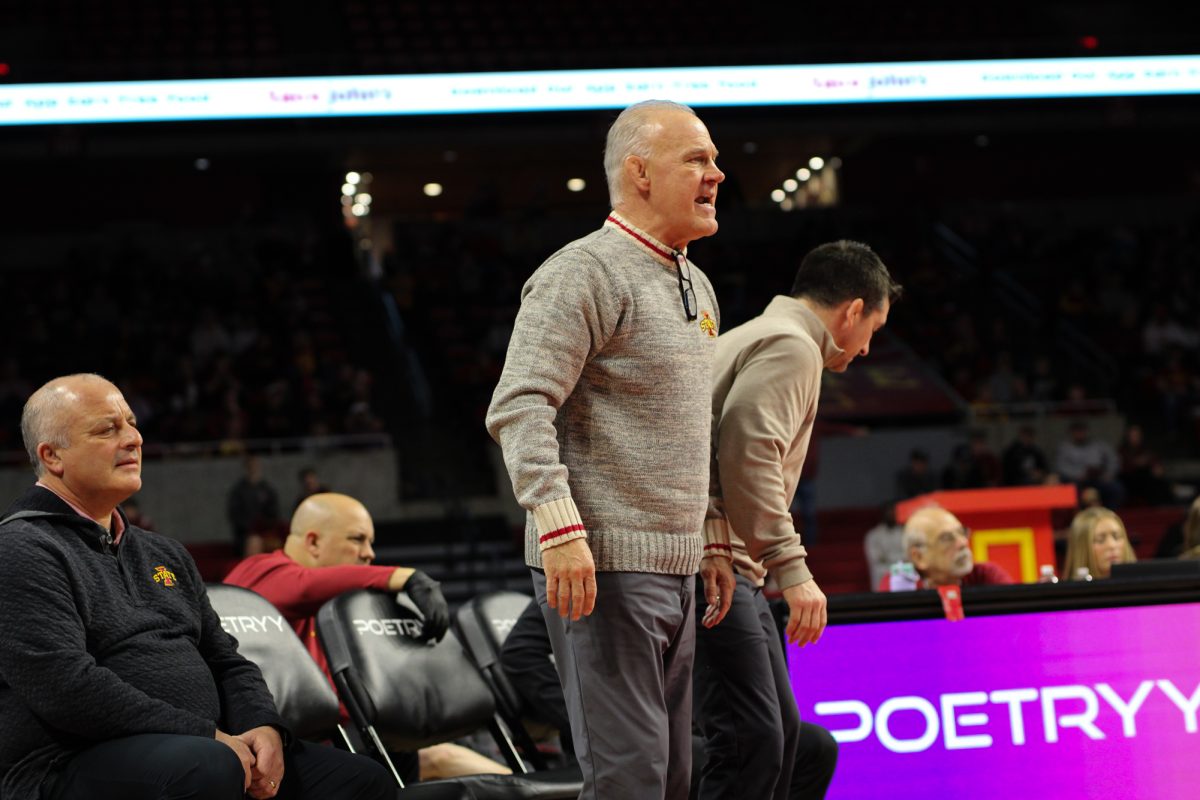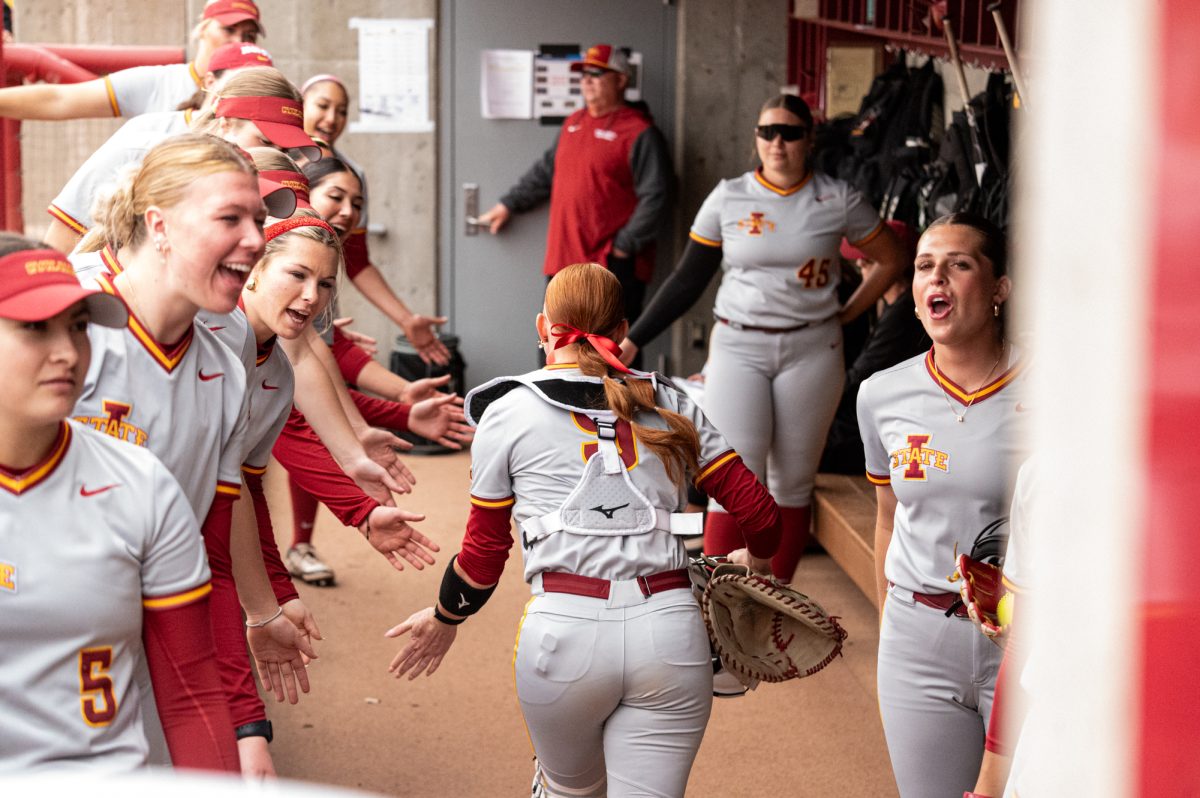ISU ROTC program draws students for variety of reasons
Emily Blobaum/Iowa State Daily
The Iowa State ROTC held a special presentation of the flag for Veteran’s Day Nov. 11.
January 24, 2017
Joining the ROTC program at Iowa State means a commitment to many additional hours of work on top of the normal academic load, and it’s a decision not to be taken lightly.
The reasons students have for joining vary, but for three current members, it’s all been worth it.
Connor Schueler is a junior in the Navy ROTC and is pursuing a Marine option.
Schueler comes from a family rich with military history. All of his grandparents were in the military, including a grandfather who won a Purple Heart, and both of his parents were in the military.
Because his parents were already out of the military when he was born, these family ties weren’t the direct reason for Schueler to join the ROTC program.
“There’s a quote by Jackie Robinson that essentially says, ‘A life is not significant except for the impact it has on others,” Schueler said. “… I thought that the military would be an excellent way to serve and be actively involved in the nation.”
This inspiration, plus his family’s military experience, led Schueler to investigate military options, and he hoped to walk the path of a Marine. He attended high school in Iowa City, but the University of Iowa lacks a Marine option. Schueler applied for the Naval Academy but was unable to make it, leading him to his next top choice: ROTC at Iowa State.
Ryan Finn, junior in Air Force ROTC, followed a path that was a bit different than Schueler’s. Finn had one family member, an uncle, who was in the military, but not an incredibly strong family connection.
As a junior in high school, he went to an Air Force Academy summer program to expose people to what the academy is all about. He applied for the Air Force Academy, wasn’t accepted, but earned a four-year scholarship for ROTC at Iowa State out of high school.
Finn is a mechanical engineering major, an additional reason why he chose ROTC program at Iowa State.
“They had engineering here, which was awesome because the Air Force looks for technical degrees when they do scholarships … so that’s what drew me specifically here,” Finn said.
The scholarship opportunities are another main reason students join the ROTC program. There are many different ways to earn scholarships; each branch of ROTC has its own procedures. Schueler earned a two-year scholarship after his sophomore year that pays for tuition.
For many ROTC students, the scholarship chances are additional incentives to join. Such is the case for Conner Tillo, Air Force ROTC junior.
“I think the No. 1 motivation for cadets joining is to develop those leadership traits and those leadership styles to become an Air Force officer,” Tillo said. “That’s the reason I’m here.”
Such is the case for the other branches as well, Schueler said, as each ROTC program ends with the goal to become a military officer.
It isn’t an easy path to take though. Finn estimated that ROTC can add anywhere from 10 to 20 hours of work per week on top of the normal academic and college responsibilities students have, depending on their position in the ROTC.
That additional workload can add stress, but the students said they’ve always kept motivated and focused on their goals to push through when it gets hard.
“What kept me going is the goal of what I wanted to do,”Tillo said. “I could see the end of the tunnel. I can be an officer if I keep going and never give up.”
For students who do make it through the program, the “end of the tunnel” Tillo mentioned is full of possibilities, namely, a guaranteed job. When students graduate at Iowa State and finish the ROTC program, they commission into the military as an officer.
“There are long days, hard work … but it’s nice to have a job at the end of college,” Schueler said. “You see people worried about what they’re going to do. Well, I know what I’m going to do.”







